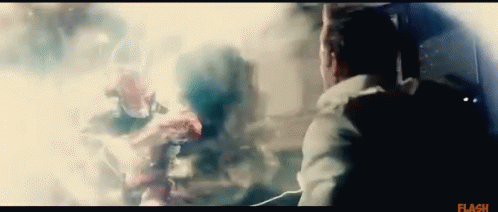Well, my understanding of the phrase "conspiracy theory" has been different, especially since I've on occasion heard it used against what under Ovation's definition would constitute plausible speculation in an attempt to dismiss it without counter-evidence.
But that's the point -- just because someone claims something is a conspiracy theory doesn't mean you have to believe them. You need to apply critical thinking to that claim too. You need to consider the claims and arguments on every side and assess them on their merits. Never trust anyone blindly, including the people telling you to mistrust others.
(Whenever I see a story -- usually one with a conspiracy-driven plot -- where a character tells the hero "Trust no one!," I want to hear the hero reply, "Oh, yeah? Then why should I trust you when you say that?")
And it's the flipside of what I've been saying. You should neither accept something or dismiss it before you have evidence. Don't trust anyone who insists that you should do one or the other. If there's no evidence, just don't decide. Keep an open mind until you learn more. Wisdom is about recognizing what we don't know.


